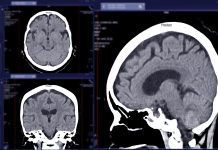A major study has found that people with signs of gum disease are more likely to suffer from multiple chronic diseases
Researchers from University College London, the University of Birmingham, and the University of Glasgow analysed UK Biobank data to explore a possible link between periodontitis symptoms and chronic diseases.
“Our study highlights the importance of oral health in the broader context of systemic diseases,” said lead author Doctor Nisachon Siripaiboonpong of UCL’s Eastman Dental Institute. “It suggests that improving gum health could help lower the risk of multimorbidity, particularly in ageing populations.”
The EFP presented the findings at EuroPerio11, the world’s leading congress in periodontology and implant dentistry.
57% of participants had multimorbidity
The researchers analysed data from 500,612 participants in the UK Biobank. Periodontal health was assessed through self-reported symptoms – bleeding gums, painful gums, and loose teeth – while multimorbidity was defined as two or more chronic conditions based on self-reports and ICD-10 diagnostic codes.
Key findings revealed that 57% of participants had multimorbidity, meaning they lived simultaneously with multiple health conditions. Around 18% showed signs of gum inflammation, and those with any symptom of gum disease had approximately 15% higher odds of having multiple chronic conditions (odds ratio = 1.15). Among the symptoms, painful gums were the strongest predictor of multimorbidity (OR = 1.54), followed by loose teeth (OR = 1.12) and bleeding gums (OR = 1.11).
Periodontal inflammation is linked to chronic diseases
Periodontal inflammation has been increasingly linked to systemic conditions, presumably due to the spread of oral bacteria and inflammatory signals through the bloodstream, which may affect distant organs such as the heart, lungs, or brain.
Furthermore, periodontitis and chronic diseases share common risk factors like poor nutrition, stress, and socioeconomic inequality.
“As people live longer, many are managing more than one chronic condition, from diabetes to cardiovascular disease to depression,” said Dr Siripaiboonpong. “But we often overlook the mouth as part of the problem … and the solution.”
The study does not prove causality but provides new large-scale evidence that gum health is linked with broader health outcomes. It also suggests that addressing periodontal inflammation may play a preventive role in public health.
“We found that painful gums were strongly linked to multimorbidity, even more than bleeding gums or loose teeth,” said Siripaiboonpong. “That surprised us and underlines the importance of listening to patients when they report discomfort, even if they are not yet diagnosed with gum disease.”
Additionally, the researchers looked at associations between poor periodontal health and specific conditions, especially alcohol-related problems, anxiety, and depression, highlighting the complex interplay between mental health, lifestyle, and oral health.
“Although our findings need further validation, they highlight the need for better collaboration between dental and medical professionals,” said Siripaiboonpong. “Screening for periodontitis could become part of a more holistic approach to managing chronic diseases.”
The authors emphasise the need for longitudinal studies (that follow people over time) to clarify whether poor gum health causes chronic conditions.
“This interesting study adds to growing evidence that gum health is linked to overall health, especially when it comes to managing multiple chronic conditions,” said EuroPerio11 scientific chair, Lior Shapira. “While the findings are based on self-reported symptoms, which don’t replace a clinical diagnosis, they’re still a valuable tool in large-scale research. What’s clear is that oral health deserves more attention in general healthcare. Medical professionals can play a key role by asking simple questions about gum symptoms and referring patients to dental care when needed. More research is now needed to follow people over time and understand how poor gum health may contribute to disease development.”








